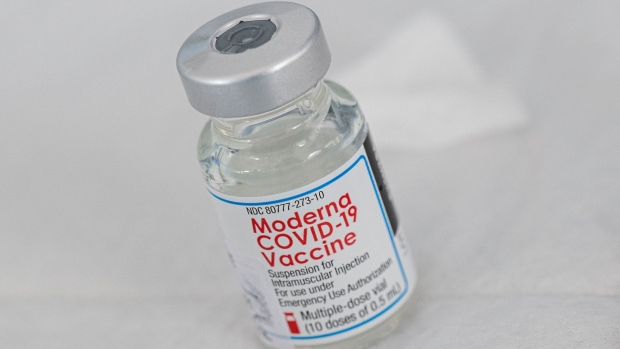Sep 20, 2022
FDA Finds Flaws at Vaccine Factory, Accepts Moderna’s Assurances
, Bloomberg News

(Bloomberg) -- US inspectors found shortcomings at a Catalent Inc. factory that produces Covid-19 shots but allowed some doses to be cleared for use after receiving assurances from vaccine maker Moderna Inc.
Some pharmaceuticals produced at the plant had visible particles that the company failed to thoroughly look into, investigators with the US Food and Drug Administration said in a report released Tuesday. Catalent received 179 complaints about particles over two years, the agency said.
“A recent FDA inspection at our Bloomington facility resulted in observations that Catalent is already addressing, as it seeks to continuously improve its operations,” the company said in an email. “Production at the facility has continued without interruption.”
Catalent’s protocols weren’t adequate to prevent contamination, and errors weren’t properly investigated, according to the report from FDA inspectors who visited the facility in Bloomington, Indiana, in August and September.
Moderna, in the thick of the fall booster push, asked the FDA to review certain batches of its Covid-19 shot made at the plant and release them to meet demand. Pharmacies and other vaccine providers have reported tight supply of Moderna’s shot because of issues with Catalent’s Bloomington facility.
“We are working closely with US government to deliver significant amounts of updated, bivalent booster doses as we continue to see high demand in certain areas of the country,” Moderna said before the FDA report was released. “We continue to be on track to meet our committed delivery of 70 million doses of our updated, bivalent vaccine by the end of this year.”
Read more: Covid booster supply hit by manufacturing issues
Moderna tapped Catalent in June 2020 to fill and package its Covid vaccine at the Bloomington site. The companies said in April 2021 that Catalent would dedicate a new high-speed filling line at the factory to Moderna for its vaccine and any other potential products in its pipeline through June 2023.
Catalent said in September 2020 it would invest $50 million to build the high-speed filling line, the third such line at the Bloomington site.
©2022 Bloomberg L.P.


